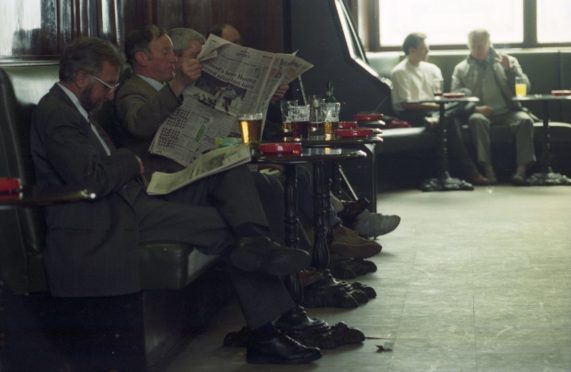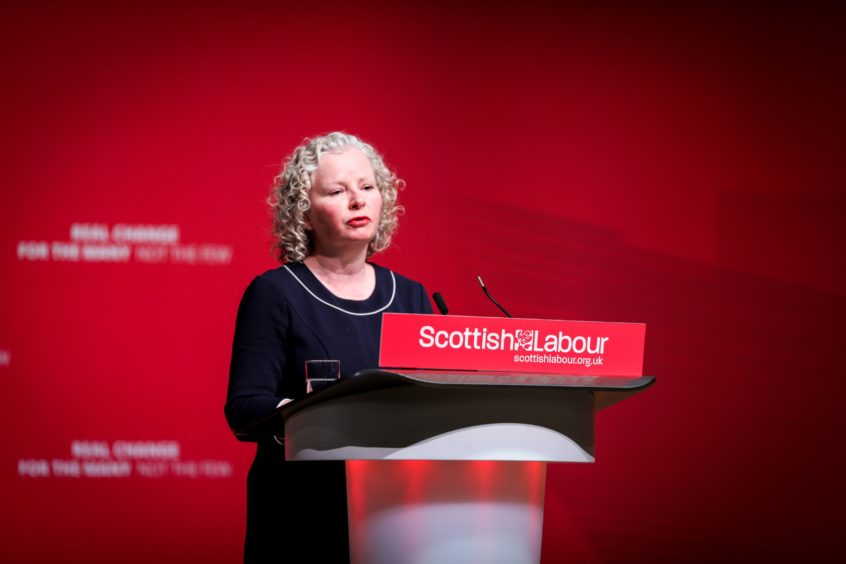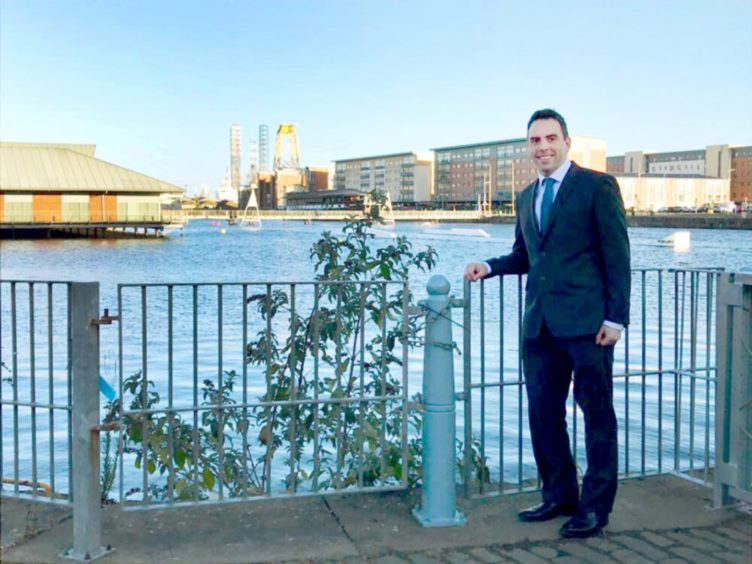Holyrood has backed calls to extend business rates relief for struggling newspapers after Scottish Government ministers were accused of being blinded by their own hostility towards the media.
The vote in the Scottish Parliament comes following an announcement last week that Kate Forbes intends to scrap the current 100% relief rate for newspaper offices at the end of March, and will now heap further pressure on the SNP to change course.
The finance secretary has extended rates relief for retail, hospitality, leisure and aviation for at least three months from April at a cost of £185 million. To do the same for the newspaper industry would cost around £1 million.
During a debate on Wednesday, in which The Courier and Press and Journal were praised for “journalism excellence”, Scottish Conservative MSP Graham Simpson called on Ms Forbes to rethink her refusal to extend the “lifeline” to newspapers.
Parliament today backed my call for newspapers to be given a rates relief extension during the pandemic. pic.twitter.com/1FhTp44tBT
— Graham Simpson (@GrahamSMSP) February 10, 2021
MSPs voted to back his motion calling on ministers to extend rates relief for the industry, alongside a Labour bid to ensure the government’s advertising budget “is invested in a way that supports innovative journalism and regional and local news”.
Mr Simpson argued the industry had faced challenges before the pandemic, including the shift to digital consumption, but coronavirus had “made a bad situation worse”.
A motion by trade minister Ivan McKee removing the call to extend relief and instead urging “all parties to bring forward their tax and spending proposals as part of the ongoing negotiations on the Scottish budget” was defeated by 63 votes to 62.
Mr Simpson said: “The SNP must resist being blinded by their long-held disdain towards awkward questions from journalists.
“From agitating demos outside the BBC; banning journalists from press conference and Nicola Sturgeon’s disrespectful conduct during coronavirus briefings, there is a culture of SNP hostility.
“They need to realise that our proud and vibrant newspapers serve local communities and play a crucial role in holding the powerful to account.
“We’re all aware of the fast-changing way in which news is consumed by people but challenges to the conventional business model need urgent support, especially in the time when reliable public information is so valuable.
“This government seems eager to pull the rug from under them and exacerbate their difficulties in this time of extreme uncertainty. If newspapers die, democracy dies too. Winning today’s vote should force the SNP to think again.”
‘We are serious in our intent to support newspapers’
SNP business minister Jamie Hepburn rejected the claim that the government has a hostility towards the media, and insisted the decision was made because of concerns that rates relief may not be the best way to support newspapers.
“We are serious in our intent to support newspapers,” he said. “But we do have concerns that non-domestic rates relief is not the most efficient or cost-effective way to respond to those long-term challenges facing the newspaper industry.”
Scottish Labour culture spokeswoman Claire Baker told MSPs a free press is “vital to democracy and a thriving newspaper sector is a key part of this”.
The most trusted source we have
She said the argument was already won last year when the Scottish Government agreed to provide relief in the same way as it does to other sectors, and ministers should now extend it as they have done for those industries.
“Our local press is among the most trusted news and information sources we have, and we must look to support it in continuing to deliver for our communities – not undermine it by removing relief at this vital, critical point,” Ms Baker said.
“During this pandemic the role of our press has become even more important, as people have sought accurate and timely local information that is relevant to their community.
“The regional basis for restrictions meant for many people their local press was the obvious place to turn up to find up to date advice and information, whether online or in print.”
Speaking during the debate, Scottish Conservative culture spokesman Maurice Golden said 3,000 people working in the industry could face a direct threat to their livelihoods if the Scottish Government does not reverse its position.
“That is the number of people who will be worried about how they will support themselves and their families,” he said.
“And all because this SNP government plans to cut off support when it is needed most. This could signal the death knell for the sector. And this is regardless of the value these papers – especially local ones – provide to their communities.”
A ‘blunt tool’
Trade minister Ivan McKee, responding for the Scottish Government, insisted newspapers had been supported in other ways, including through advertising.
He said rates relief was a “blunt tool” that could provide the biggest benefit to those who need it least.
In May last year, £3 million was invested in advertising public health information with a particular focus on local newspapers, Mr McKee said.
He added: “It is this advertising support that we have seen as the most effective way to direct resources into the sector.
“It enables more effective targeting where support is needed most, in particular towards those local newspapers which are the main focus of this debate.”




